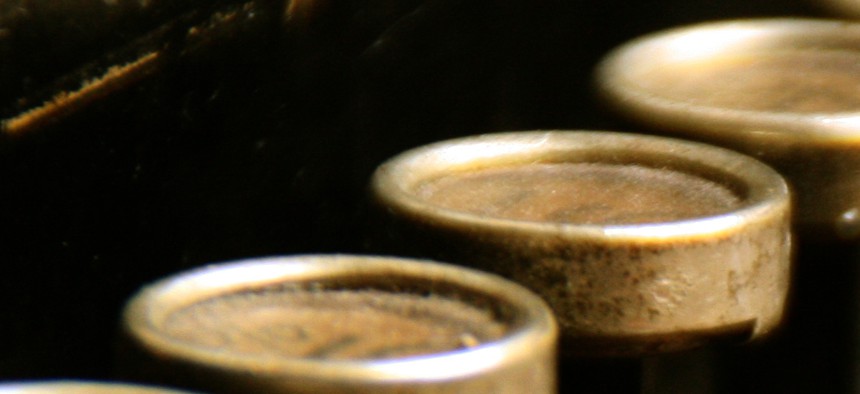Analysis: Typewriters Were Built to Last

PhotoXpress
Laptops and tablets are increasingly products of our disposable consumer culture.
The typewriter is, among things, an archetype of today’s computers. But while computers are increasingly products of our disposable consumer culture -- assumed and built to be upgraded often -- typewriters were built to last. While occasionally some innovation or another would pop up – a machine made noiseless or self-correcting or electric – the general idea remained the same. Fingers mashed down a key, the key drove a lever with the designated character on it toward an ink-saturated ribbon, and with a decisive clack the intended mark was made (provided the typist’s fingers were accurate). It was a physical interpretation of intention-meets-action, thought-meets-paper, and many users maintained an ongoing relationship with their typewriters for years.
So intense was this relationship between writers and their machines, that many people who made their careers out of writing never made the transition to computers; Hunter S. Thompson used a typewriter until his until his death in 2005. AndCormac McCarthy is still click-clacking away, afterselling his Lettera 32, which he’d been writing on for close to 50 years, at a charity auction a few years back for $254,500 – and promptly receiving another of the same model from a friend for $20. It's unsurprising that he'd stay committed to the heavy, clunky producer of words. Computers and other digital tools may have brought ease to writing; they don't offer, however, the deliberation that typewriters do -- the forethought required to avoid the particular punishment of a typer: a piece of correction ribbon or dab of White Out be required to eradicate an erroneous mark or misplaced musing.
There was a time that nearly every home and office had at least one typewriter, ready to tap out letters or lists, invoices or inspirations. Today, of course, the machines have gone the way of vinyl records, romanticized analog nostalgia, a sometimes-useful kitschy artifact with which to wax nostalgic. But, also like vinyl records, typewriters have their enthusiasts, cult followers and collectors drawn to their character and to the mystery of all the ideas and dreams that have been poured, or, rather, pounded, into them. Actor Tom Hanks is a collector, with a rumored 200 or more.
Read the full story at TheAtlantic.com.
NEXT STORY: Why Firefighters Are Scared of Solar Power


